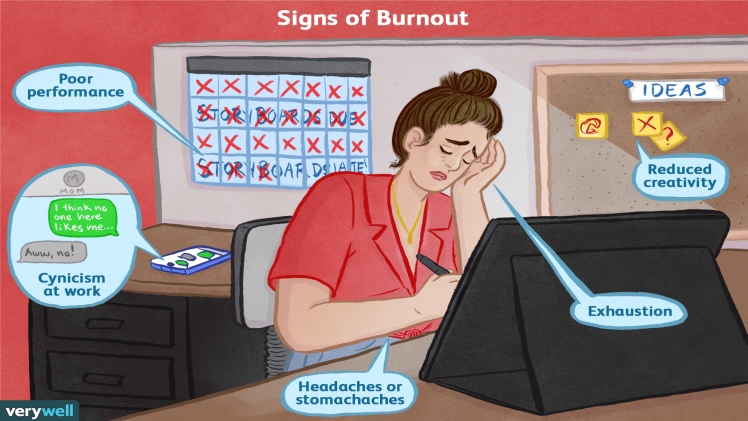Do your work, hobbies, and meetings with friends no longer give you pleasure or make you feel anything at all? Maybe this is the first symptom of emotional burnout. What is this condition? How do you distinguish it from accumulated fatigue? What to do if you encounter it?
Distinguish Emotional Burnout From Fatigue
Have you ever seen an emotionally burned out child? No? Neither have we. This means that it is not a natural mental state of a person, and you and I should prevent it in every possible way, diagnose it in time, and if possible eliminate it.
The term “emotional burnout” defined as a growing emotional exhaustion is rather vague. It is a certain first stage of serious depression, and it differs from fatigue only in the duration and consistency of symptoms.
It’s the point at which you begin to feel that everything you do is pointless. When the things you used to love, objects, and even people no longer bring you the joy you used to have and nothing resonates with you in a healthy, vibrant way, or evokes emotion. In such a condition, things you enjoyed, don’t please you anymore. You don’t even smile when you find out your friends are getting promoted, win some cash playing at 22betsenegal.sn, or watch a long-expected movie.
People in creative professions who do not get a return from their work, as well as people in risky professions or those requiring great emotional stress – doctors, rescue workers, firefighters – are more susceptible to this.
This happens because the former feed their self-esteem from outside, cannot live without praise and do not allow themselves the lack of talent, while the latter, experiencing hyper emotions every day and accumulating incredible stress, include a protective function and subconsciously weaken the sharpness of their perception of the outside world, just so the doctor, for example, does not go crazy with another death on the operating table. Emotions are dulled, and the person no longer has any bad or good feelings.
Stages of the Burnout Process
It should be noted that that this process looks different for different people and strongly depends on the initial attitude towards the problem, but it is possible to distinguish four general stages:
- Resistance.
- Fatigue.
- Exhaustion.
- Disgust.
Causes of Emotional Burnout
The main reason for emotional burnout for the rest of people is the accumulation of stress at work. Modern man is driven by social conditions into a trap of constant expectations – the whole environment expects “success” from him, and he plows around the clock to justify these expectations.
Perfectionists are the fastest-burning people. They are the most prone to depression because the biggest burden on our brain is constantly striving to meet someone else’s expectations.
If your profession is connected with risk and you do not know how to relax and be lazy at least sometimes, you can soon find yourself at the psychologist with a diagnosis of emotional burnout.
How to Prevent Emotional Burnout
To avoid taking yourself to extremes, start accepting yourself with all your flaws and mistakes! If you’re tired, allow yourself to rest without feeling guilty about it.
How to Deal With Burnout
If you are no longer happy about something, it might just be tiredness – shift your attention to other sources of emotion, don’t dwell on failures and negativity. Don’t let yourself get burnt out, see a good therapist before life loses its colors. If you notice a similar condition in your relatives and friends, try to breathe life into them by whatever means are available (relaxation procedures, a change of scenery, breathing exercises, sports, joint rest, any stress relief techniques). But if you see that this doesn’t help, don’t procrastinate and see a specialist.

